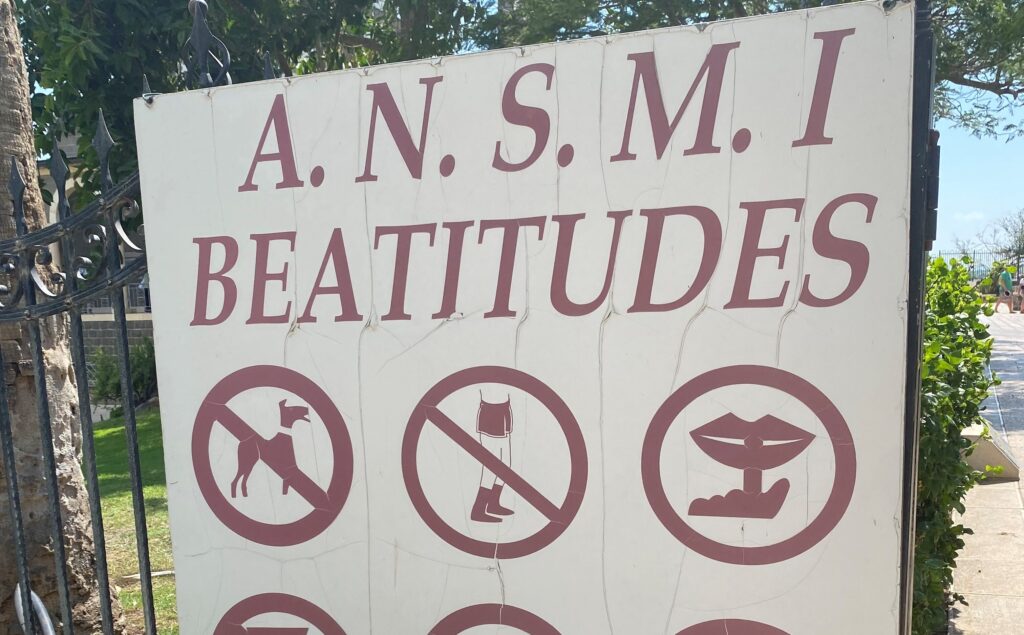Blessed are the peacemakers, for they will be called children of God Matt 5:9 (NIV)
Love your enemies, do good to them, and lend to them without expecting to get anything back. Then your reward will be great, and you will be children of the Most High… Luke 6:35 (NIV)
As we approach Remembrance Day, many countries around the world will be pausing for 2 minutes silence at the eleventh hour of the eleventh day, of the eleventh month, as that marks the time (in the UK) when the armistice became effective at the end of the First world War in 1919. It’s a time to reflect on the horrors of war, remember those who lost their lives serving their country and pray for peace in situations where there is ongoing conflict.
Peace-making requires taking action to get involved in conflicts and build bridges between those who are at odds with each other. Right now, our international community desperately needs peacemakers, as the conflict between Israel and Palestine has erupted to a new horrific level, and the conflict between Russia and Ukraine rumbles on, along with hotspots around the world that have dropped out of our news. However, it’s not just a job for international diplomats, but a mandate for all Christians to be people of peace in their communities.
I was reminded of Jesus’ blessings for those who bring peace, when I visited the Mount of Beatitudes, on my trip to the Holy Lands in July 2023. The hillside where Jesus delivered his famous ‘sermon on the mount’ overlooks Lake Galilee, and we were amused that the entrance sign offered a blessing for those who remain silent, but not those who smoke, carry a gun, wear shorts, have a dog or eat a picnic, so definitely no feeding of the 5000 here! Our tour guide, Bassam, was keen to tell us that he’s 100% indigenous Nazarene, as demonstrated by a recent DNA test, however, he was less keen to state if he followed a religion. He replied, ‘I am for humanity’ and went on to remind us that not only did Jesus proclaim a blessing for those who bring about peace (Matt 5:9), but goes a step further, instructing his disciples to ‘Love your enemies’ (Luke 6:35).
This sounds so simple and yet is really difficult in practice. It must be even harder for those who live in a land that has been embroiled in conflict for thousands of years, without any current roadmap to peace. When Jesus spoke these words, he was living in first century Roman occupied Palestine. Today, Bassam is living in Israeli-occupied Nazareth. As we journeyed through the Holy Land, we observed and heard stories of the constant threat of violence, and I wondered who were the peacekeepers?
The first notable sign that anything could happen at any moment, was the heavy military presence in Jerusalem. As we walked around the city, we came across patrols of Israeli Defence Force, young men and women completing their military service, sweltering in their body armour, carrying semi-automatic weapons. We regularly saw young Palestinian men stopped and searched and when we travelled by tram, there was always an armed guard on the lookout for suicide bombers. Were these soldiers’ intimidators or peacekeepers? It all depends on whether you are Israeli or Palestinian.
A somber afternoon at Yad Vashem, Israel’s official memorial to the victims of the Holocaust, gave us opportunity to reflect on the horrors of the genocide of Jews, the disabled, LGBT+, and others by the Nazi regime during the Second World War. My own grandparents and father made a lucky escape from the gas chambers, taking refuge in London, and I found myself identifying with the moving stories of survival and harrowing stories of those murdered. We happened to tour the museum with around 300 teenage army cadets, learning about their national history and the reasons for the defence force.
However, carrying a weapon is not simply about defence. The following day, the Israeli military conducted a major assault on Jenin refugee camp in the Palestinian city of Jenin, located within the Israeli-occupied West Bank, targeting militants. 12 young men dead, 100 people injured and 500 Palestinian families forced to flee, triggered a series of revenge attacks and counterattacks in the following days. For 24 hours the Arab world in Jerusalem shut down, as a sign of mourning and protest. The Souk, which previously bustled with street sellers, was eerily quiet and I wondered what it took to ‘Love your enemy’ in these conditions?
This attack on Jenin coincided with demonstrations by Israeli citizens in conflict with their own right-wing government, who wished to remove the power of the Supreme Court to declare government decisions ‘unreasonable’. These protests continued during our trip, and to avoid getting caught up in a demonstration around the airport, we arrived 5 hours early for our homeward flight. I found out later that my neighbour’s sister, who lives in Israel, had been protesting that day and I wondered if peacemakers could also be protestors?
It’s not just Israelis in conflict with one another. Welcomed to the home of a Christian family after a Sunday service at the Church of the Nazarene, we discovered there had been 116 deadly Arab mafia related shootings in Nazareth in the first 7 months of 2023, including five killed at a car wash just 100m from our host’s home. I asked Amal if he was worried for his family, but without hesitation he replied, ‘God will protect…and be wise about your business partners.’
It felt like there was conflict at every level in this land, however, we did hear a hopeful story of peace-making from Sami, proprietor of Liwan culture café, a social enterprise that aims to strengthen a sense of community and social solidarity in the Old City of Nazareth. As we sipped our lemonade and mint slushies, he shared how for the first 18 months, he was in a running battle against drug dealers, but gradually things started to change. Seven years on, Liwan café not only serves coffee, but hosts music concerts, cinema, art exhibitions and lectures, and has been a catalyst for regeneration and peace in this corner of Nazareth.Ultimately, peace comes from reconciliation with God and with one another and I experienced a wave of ‘peace that surpasses all understanding’ (Phil 4:7) during an Arabic worship song, at the Church of the Nazarene. The song reminded us that waves of healing, life and peace can be found in Jesus. As the translation was relayed into my earpiece, I was hit by a wave of emotion and was left with the words, ‘My peace I give you’.
Since my visit in July and initial writing of this article, the violence has escalated, with sickening atrocities, provoking more violence. The people mentioned in this article, along with all those who live in this troubled land, live in very dangerous and uncertain times. I invite you to pray for a miraculous de-escalation of violence, pray for those who grieve the sudden loss of loved ones, for the release of captives and for active and effective peace-making at an international level.
As we look on and feel helpless about world situations, maybe take a moment to reflect on your own sphere of influence…
I wonder…?
Where did you bring peace today?
Where did you find peace today?
What might you do differently tomorrow?
Aike Kennett-Brown
BRF ministries Messy Church Ministry Lead
You may also like
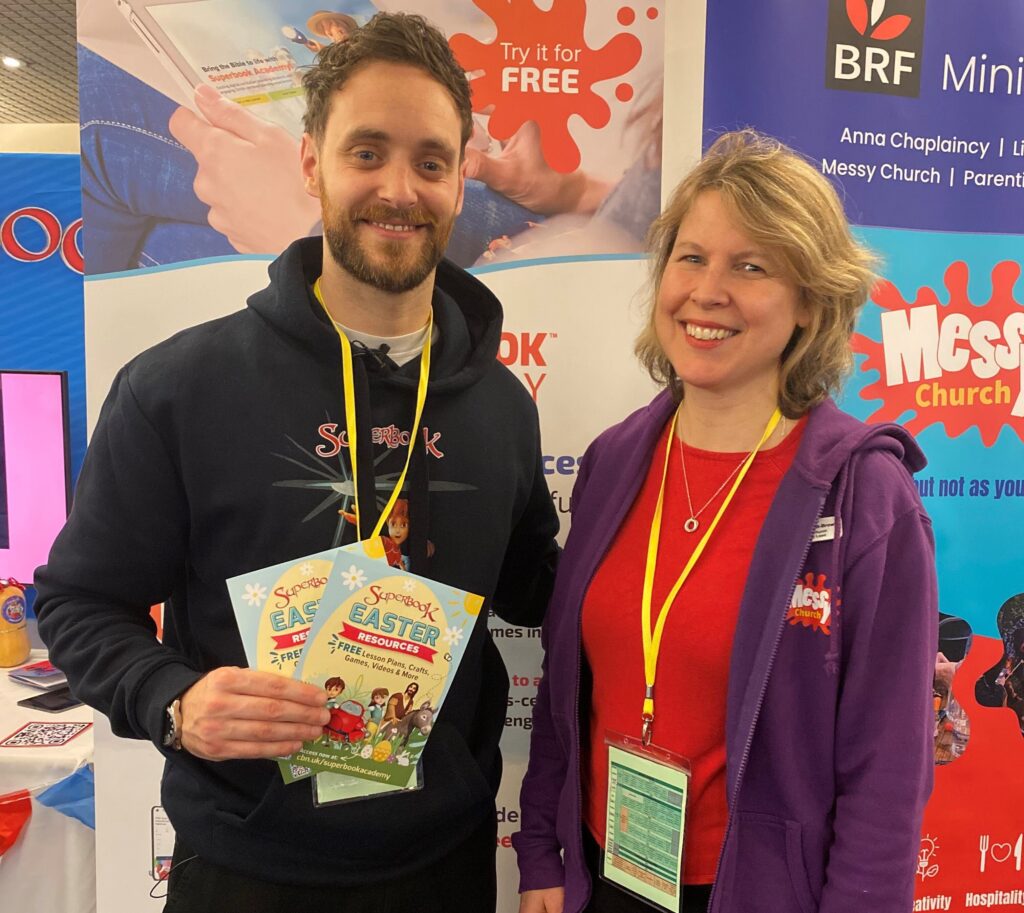
Super storytelling with Superbook Academy
25th Mar 2025Messy Church is a place where people of all ages encounter Jesus in a creative, welcoming, and engaging environment. We love to explore the Bible story through our activities, but when it comes to storytelling during the celebration, we know that some team members quiver at the thought of delivering a captivating Bible story, that engages both adults, young children and every age in between.
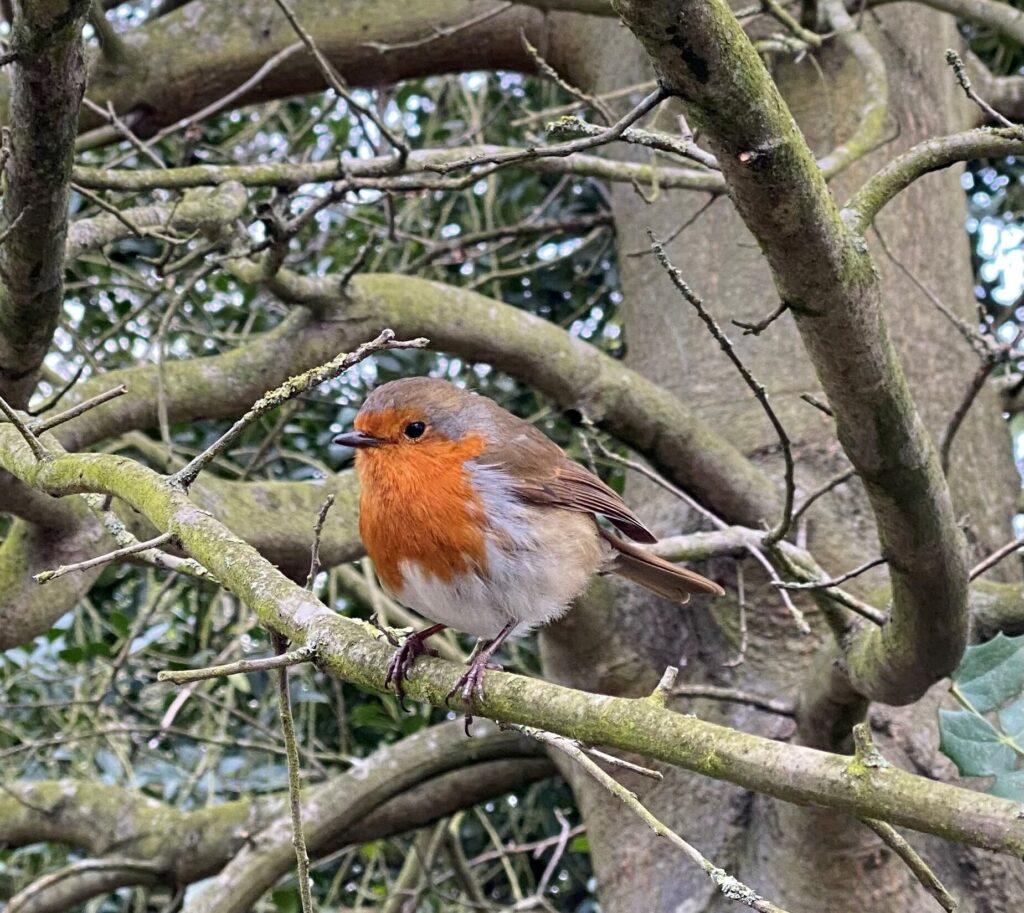
Feed the Birds!
4th Mar 2025Consider the ravens: they do not sow or reap; they have no storeroom or barn; yet God feeds them. And how much more valuable you are than birds! Luke 12:24 (NIV). I was inspired after our Messy Church Goes Wild session, ‘Wild on the Wing’, to dig into the Messy Church value of ‘hospitality’ and see if I could welcome more birds into my suburban London garden.
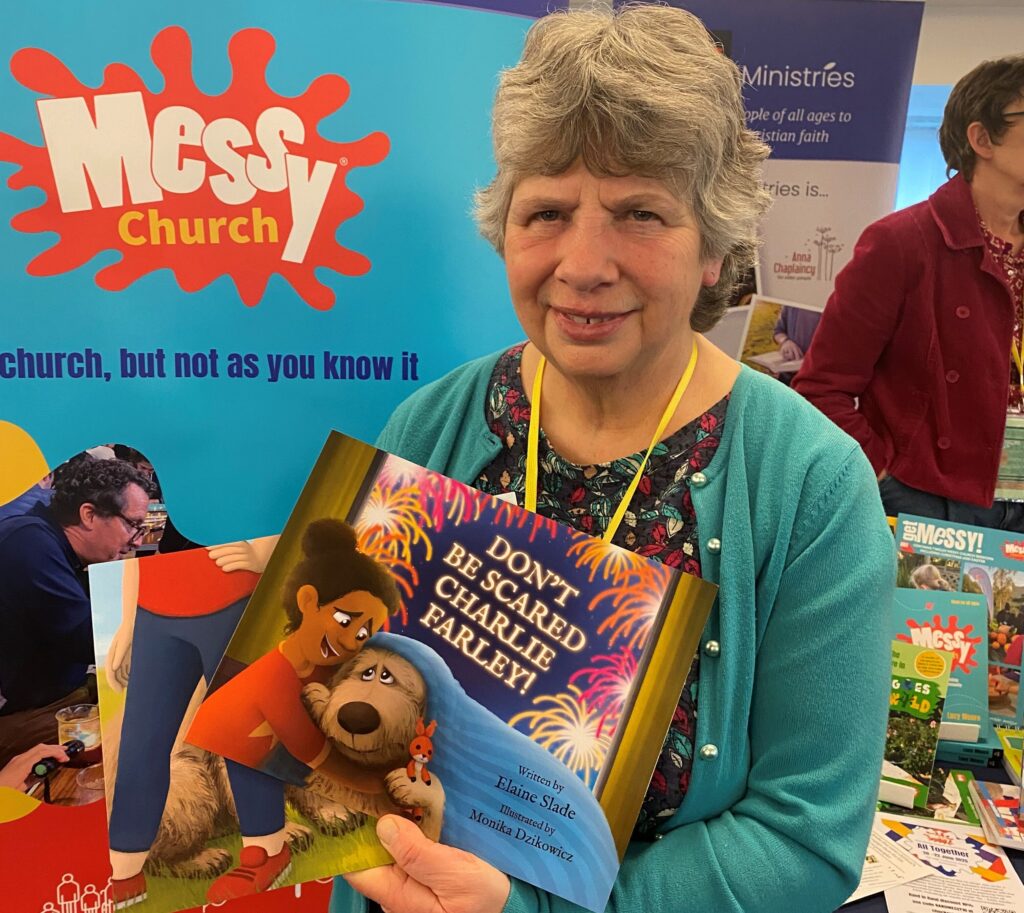
Reading Together
25th Feb 2025At Messy Church, we’re always looking for ways for different generations to interact. Reading together is one approach. Providing a quiet book corner alongside the hustle and bustle of a busy Messy Church might give a parent/carer the opportunity for some quality 1:1 time as they read with their young child. It also allows the introverts and those with a studious spiritual style, to pick up a Bible and read about the theme of the day.
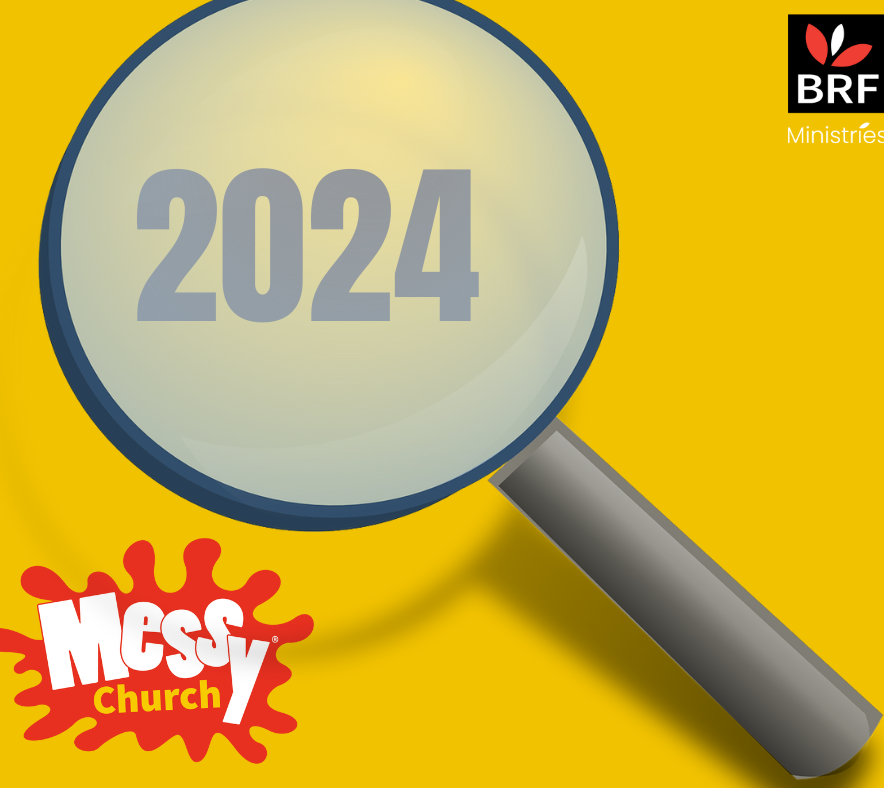
Where was God at work in Messy Church in 2024?
21st Jan 2025At the end of every Messy Church, I always like to ask the team: What went well? Even better if? Where is God at work? How...
